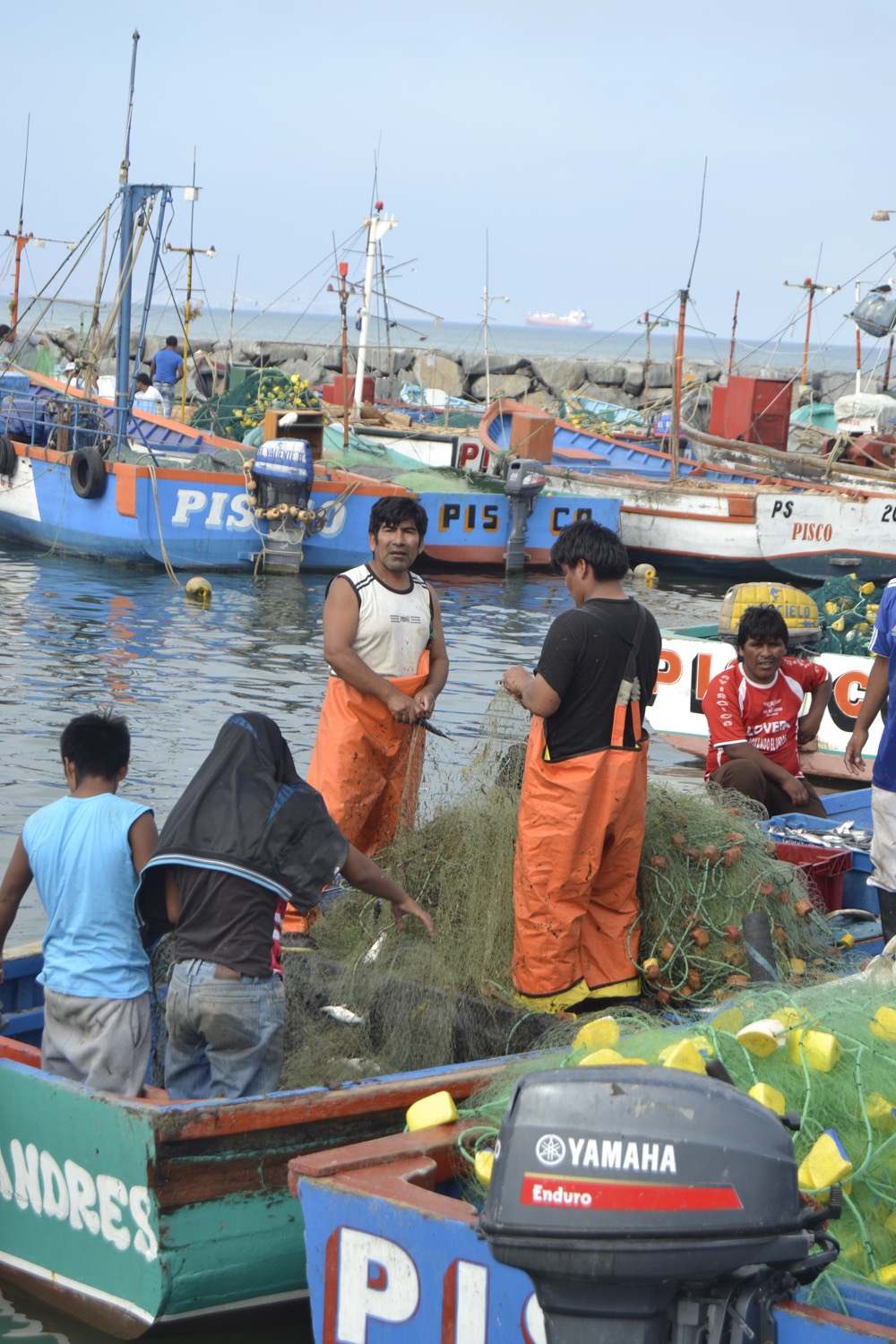How can we help small-scale and data-limited fisheries manage their resource sustainably?

Using FishPath, the Conservancy worked with government scientists and managers in Peru to manage – for the first time – one of the most popular fish, Chita, a staple in their national cuisine. The government is in the process of turning their FishPath recommendations into policy. Photo: Jono Wilson
Conservancy scientists spearheaded the development of FishPath, the world’s only comprehensive decision-support tool for designing management strategies to put fisheries on the path to sustainability.
Nearly half the fish consumed worldwide originates from poorly managed fisheries. Unsustainable fishing is threatening ocean biodiversity, and is costing the global fishing sector an estimated $50 billion a year in lost potential revenue. Poorly managed fisheries also pose tremendous risks to people who depend on the sea for their livelihoods and sustenance.
Unfortunately, many communities and jurisdictions around the world lack the basic information, expertise, and resources needed to develop management plans that could set their fisheries on a pathway to sustainability. And there is no “one size fits all” solution. Fisheries, cultures, and policy landscapes vary widely around the world, and what works in one place may not work elsewhere.
In addition, there are thousands of possible management strategies – the combination of management options for data monitoring, stock assessment, and management rules – from which to choose. If a government inadvertently selects a prescription that overburdens their staff or clashes with local cultures, then their efforts are more likely to fail, and fisheries will continue to decline. Getting the right solution to the people that need them most is a daunting task.
To address this challenge, our scientists organized a working group with 20 of the world’s top fisheries scientists under the umbrella of the Science for Nature and People Partnership. Together, we developed FishPath, the world’s only comprehensive decision support tool for fisheries management.

Using FishPath, the Conservancy worked with government scientists and managers in Peru to manage one of the most popular fish, Chita, a staple in their national cuisine. The government is in the process of turning their FishPath recommendations into policy and a tailored management plan. Successes are being borne out on the water too, as local fishermen are implementing reforms through community-based management systems. Photo: Matias Caillaux
FishPath guides fisheries managers through the otherwise overwhelming array of choices before them, highlighting the best management options for their unique circumstances. Along with project partners including CSIRO (Australia’s scientific research organization), NOAA Fisheries and others, we designed FishPath so that users need only answer a series of questions about their fishery and the tool will decipher which management strategy is most likely to be effective and feasible. It guides managers towards solutions tailored to their specific resources and needs.
FishPath can be integrated into the decision-making processes of seafood sustainability organizations, such as the Marine Stewardship Council, which can help make certification – and its potentially significant market upside – accessible to thousands of small-scale fisheries.
We are now testing FishPath in fisheries in a great diversity of settings and with a wide array of community and governmental partners, from Peru to The Bahamas to Mexico and Australia. Our aim is to demonstrate that the health of fish stocks can be assessed at low cost, and that management options are available to put these fisheries on the path to sustainability.
As an objective and consistent approach to improve fisheries management, FishPath is the leading edge of our Global Fisheries Strategy at The Conservancy – opening the door to better management, certification, and long-term sustainability for thousands of fisheries and fishing communities around the world.
Sean P. Fitzgerald, Jono R. Wilson , Hunter S. Lenihan
Despite the economic value of California fisheries, many lack information needed to determine if fishing is occurring at a sustainable level. The Southern California Rock Crab fishery in the Santa…Jono R. Wilson, Serena Lomonico, Darcy Bradley, Leila Sievanen, Tom Dempsey, Michael Bell, Skyli McAfee, Christopher Costello, Cody Szuwalski, Huff McGonigal, Sean Fitzgerald, Mary Gleason
Climate change is amplifying threats to ocean ecosystems and marine fisheries worldwide. In order to respond appropriately in the face of these ocean changes, commercial and recreational…The Nature Conservancy, Jono Wilson
California fisheries, like the red abalone fishery, are facing increasing environmental variation and uncertainty due to climate change, complicating the sustainable management of commercial and…The Nature Conservancy, Jono Wilson
There are thousands of fisheries around the globe that lack the infrastructure, capacity, resources and management techniques to perform conventional assessments and management. We know that fisheries…